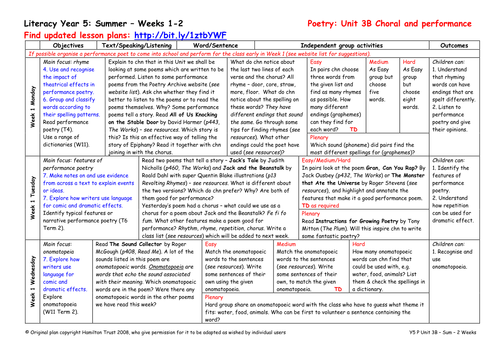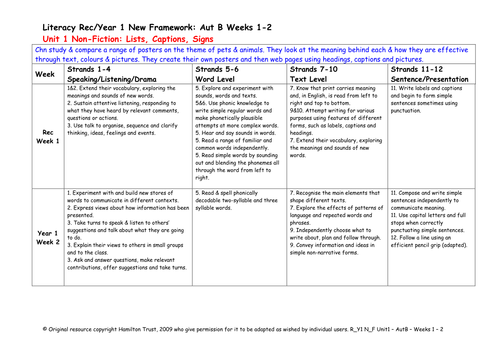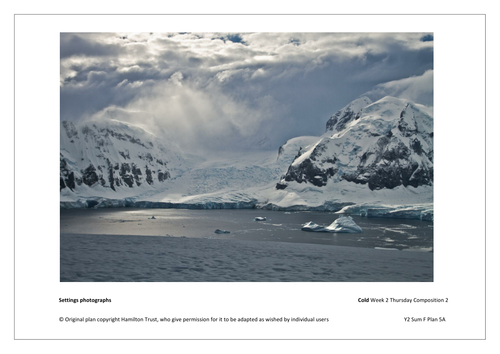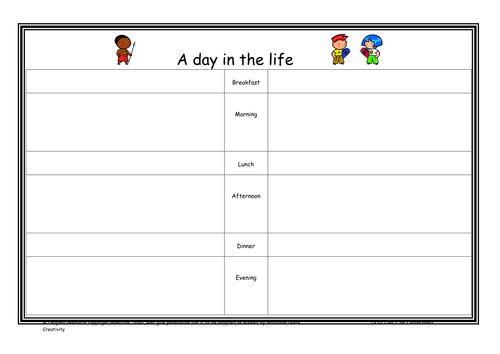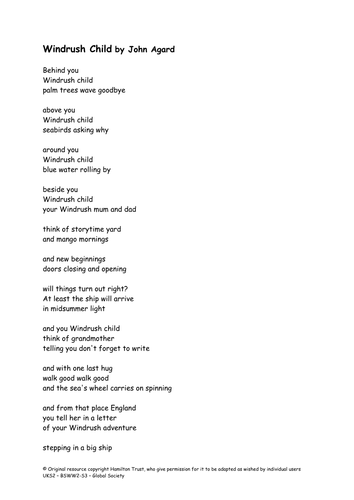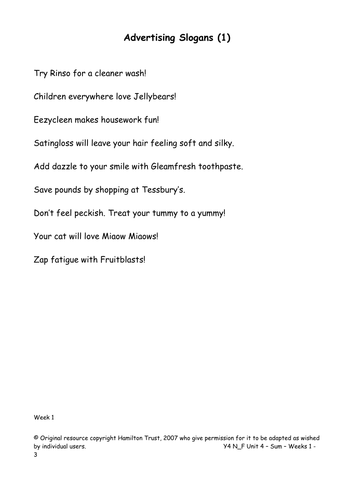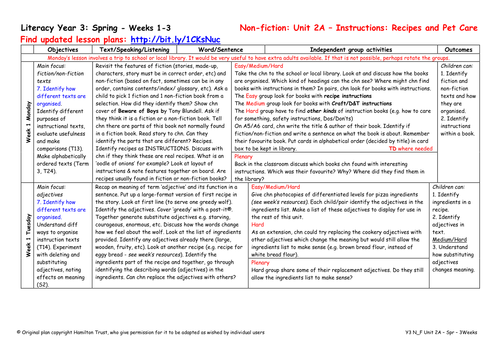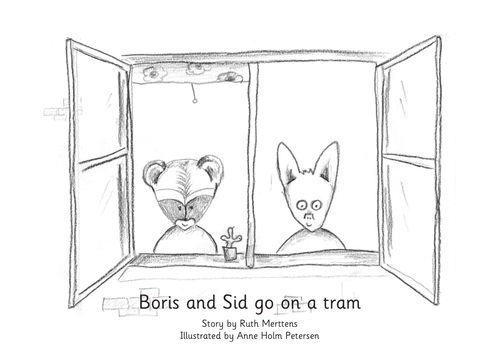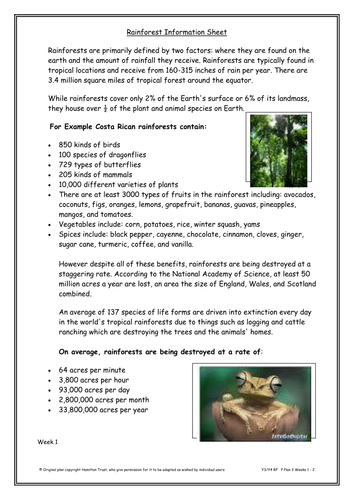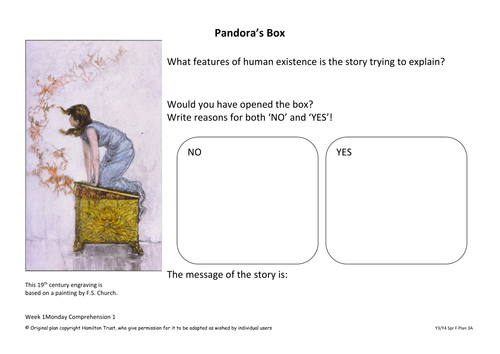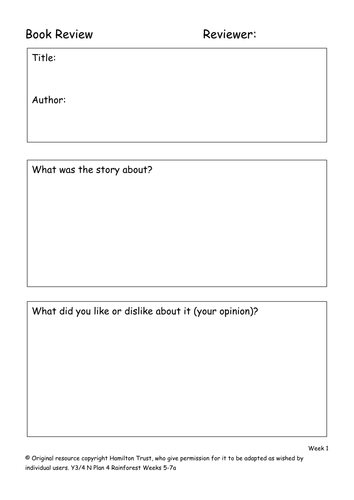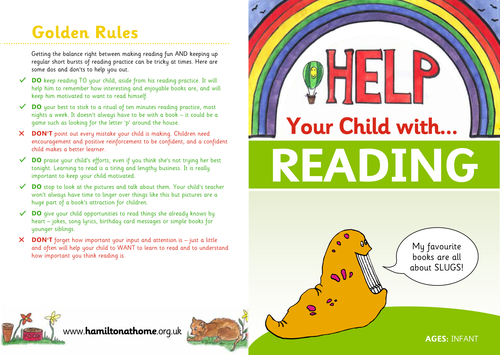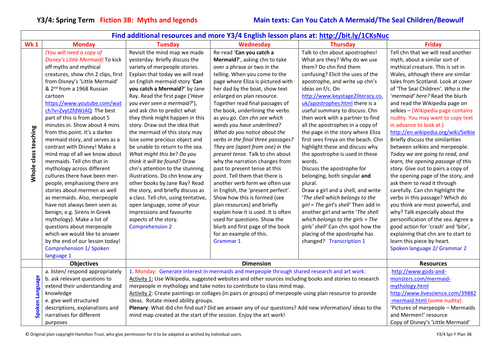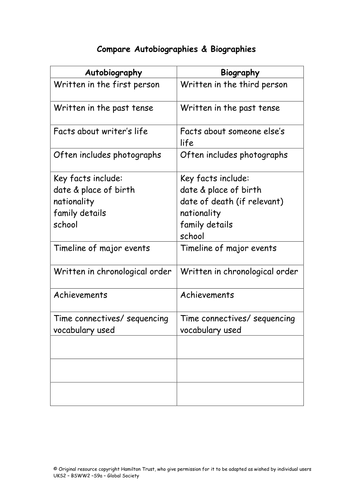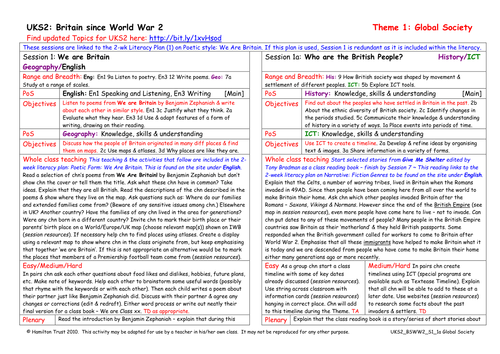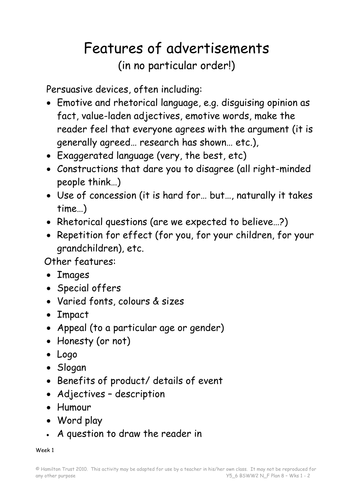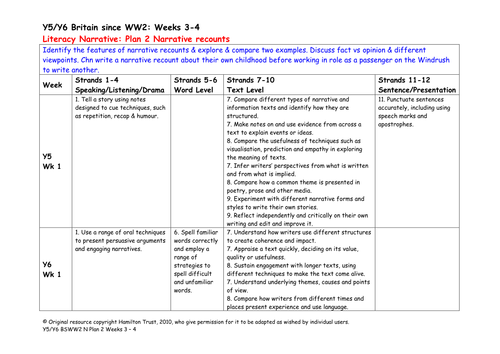
397Uploads
10045k+Views
11646k+Downloads
English language arts

Yr 5 Poetry Unit 3B Choral and performance
Compare performance poems that tell a story and identify the features that make a good performance poem. Children then write their own performance poetry based on a fairy tale. Perform it for an invited audience using dramatic conventions to enhance the poem.

Yr1 NF Unit 1 Lists, captions and signs
Children study and compare a range of posters on the theme of pets and animals. They look at the meaning behind each and how they are effective through text, colours and pictures. They create their own posters and then web pages using headings, captions and pictures.

Year 2 Fiction 5: Quest stories
Children read a range of quest stories, exploring structure and language choice. They explore 4 types of sentence and experiment with tense. Children write their own extended stories, concluding by performing their writing to a younger child. This plan uses the books Lost and Found and The Way Back Home, both by Oliver Jeffers and We're Going on a Bear Hunt by Michael Rosen. It also uses Hamilton Group Reader The Quest.

A day in the life! Rainforest Diaries
Your lunch is what you find to eat in the rainforest, not the contents of mum’s packed lunch! But there are other important differences too!
Children use their notes from the previous session to compare their lives to those of children in the Jungle.

Yr 1 Poetry Unit 3B Weather poems
A range of poetry structures is identified through examples of poetry written on the theme of weather. Children consider the effect of patterned language, imagery and rhyme. They write and perform their own weather poems.

Rainforests - Reports Weeks 1 - 4
Explore report writing (and some explanation writing) through the fantastic book The Vanishing Forest by Richard Platt.
Identify the causes of deforestation and look at both sides of the question. Research the importance of the rainforest and write a report.

Windrush
Read the poem Windrush Child by John Agard and get children’s reactions. Give brief history of SS Windrush’s journey to Britain in 1948. Children either mark the journey on a map or answer questions about photographs to do with Caribbean immigration on the Windrush.

Yr 4 NF Unit 4 Persuasive texts: Media
Children investigate persuasive writing devices in a variety of magazine and newspaper adverts and cinema and TV adverts. They produce an individual poster, work in groups to write a TV or radio advert and then create a trailer for a children’s DVD.

Yr 3 NF Unit 2A Instructions : Recipes and Pet Care
Use recipes in Beware of Boys to identify differences between fiction and non-fiction text and to stimulate recipe writing.
Make pop-up cards without pics and study recipes without ingredients to identify features. Then write instructions for pet care as a poem!

Year 1 Fiction 3: Stories with repeating patterns and counting stories
Read a story with repeating patterns, Bringing the Rain to Kapiti Plain, by Verna Aardema. Retell the story using flow charts, write describing words and punctuate sentences. Read two counting stories Handa’s Hen by Eileen Browne and We All Went on Safari by Laurie Krebs, before guiding children to write their own. The Hamilton Group Reader, Boris and Sid go on a tram, is used to develop confidence in reading aloud.

Rainforests - Creating Images weeks 1 - 2
This poetry unit allows children to explore the wonderful array of rainforest animals. They use two poetry books to explore different features and go on to use these as structures their own poems. They have fun performing their poems to other children in the school
Suitable for years 3 and 4.

Year 3/4 Fiction 3: Myths and legends
Become familiar with a range of Greek Myths, The Orchard Book of Greek Myths by Geraldine McCraughrean, Greek Myths by Marcia Williams. Use them to study powerful verbs, verb tenses, use of first and third person, paragraphs and ways of showing dialogue. Children draw story maps to learn a Greek Myth off by heart and to retell another myth in written form.

Myths and Traditional Tales Weeks 5 - 7a
Find brilliant rainforest characters in ‘The Great Kapok Tree. Explore the language of traditional tales and write a rainforest ‘Just So’ story. Read a tale from Papua New Guinea. Make a board game as a lead in to writing a quest story.

Year 3/4 Fiction 3: Myths and Legends
Children explore a variety of myths and enjoy the mythical creatures introduced in Can You Catch A Mermaid?, The Seal Children and Beowulf.
They learn these tales and use them as stimuli for creating their own myths and legends. They use the texts as models to help develop their understanding of detailed description in writing and correct grammar.
Suitable for Year 3 and 4.

Biographies
Discuss biographies and autobiographies and list the features of each showing diffs. Chn write a fact file or biography of one of well-known immigrants or descendants of immigrants identified in S10. Make class books for other children to read in school library.

We Are Britain KS2
Read some poems from We are Britain by Benjamin Zephaniah and ask what these children have in common. Discover where in the world children in the class came from originally – locally, elsewhere in Britain, another country? Write poetry about each other in BZ style.

Persuasive language Weeks 1 - 2
Identify persuasive features used in adverts. Study adverts over the decades since the end of World War 2 in detail. Children create a paper advert about an exhibition related to the Topic. They then plan and present a TV or radio advert for a modern appliance.

Recounts Weeks 3 - 4
Identify the features of narrative recounts and explore and compare two examples. Discuss fact vs opinion and different viewpoints.
Children write a narrative recount about their own childhood before working in role as a passenger on the Windrush to write another.

Journey To Jo'burg
Explore in more detail the history of apartheid in South Africa, with links to Mandela. Look at the signs that were displayed.
Pick out examples of effects of apartheid on non-whites in Journey to Jo’burg, and act out short scenes that show these effects.
Suitable for years 5 and 6.

